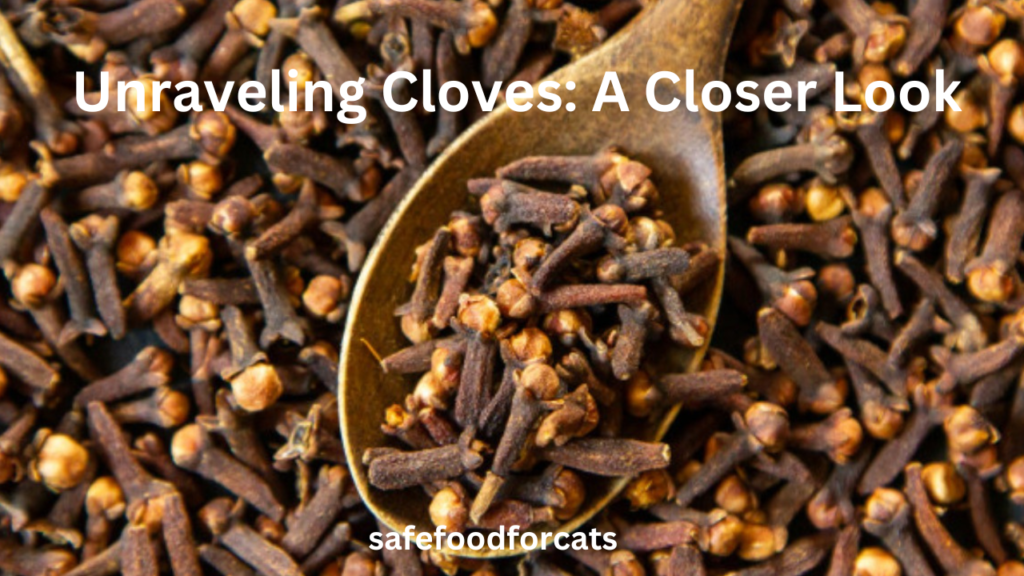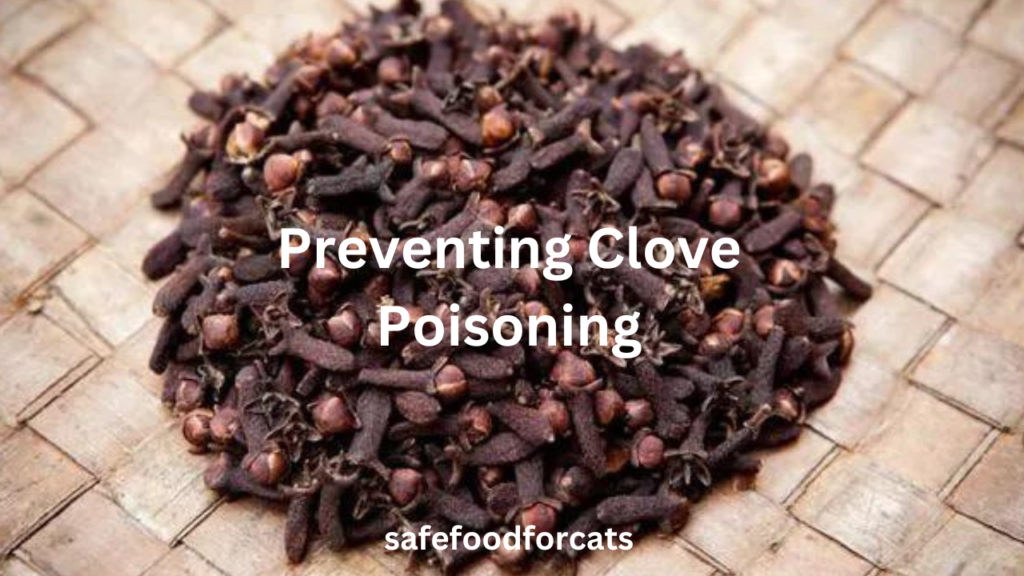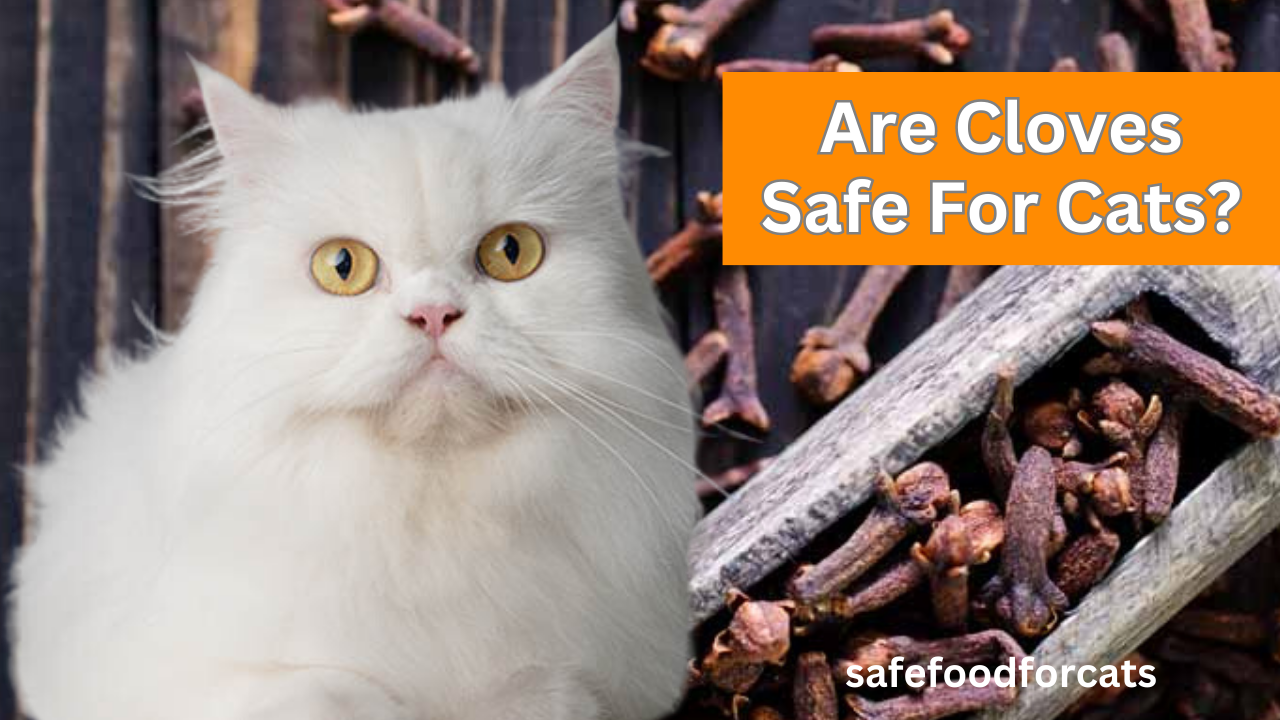Unraveling Cloves: A Closer LookCloves
Unveiled: Origins and Usage
Cloves, derived from the aromatic clove tree (Syzygium aromaticum), are no strangers to history’s tapestry. Originating in the Indonesian archipelago, cloves have journeyed through time, being revered for their multifaceted attributes. These attributes encompass their contribution to Southeast Asian cuisine, their aromatic presence in perfumes, and their utilization in various therapeutic practices.
With their intricate shape resembling a nail, cloves boast a strong aroma characterized by a warm, spicy, and slightly sweet fragrance. Historically, cloves have been celebrated for their ability to enhance the flavor profile of culinary dishes, whether in savory delights or delectable desserts. The essence of cloves, often extracted in the form of essential oil, has permeated the realm of aromatherapy, offering relaxation and well-being through the magic of scent.
A Perilous Constituent: Cloves and Eugenol
Central to the clove’s aroma and therapeutic potential is a compound called eugenol. Eugenol is a volatile oil that imparts a distinctive scent and flavor to cloves. While humans can savor the aromatic and potential health benefits of cloves, the story takes a different turn when it comes to our feline companions.
Eugenol’s Dark Side: The Danger for Cats
For cats, eugenol takes on a menacing role, acting as a potent toxin that can provoke detrimental effects. This volatile compound, abundant in cloves, presents a significant threat when cats are exposed to it. The vulnerability lies not only in ingestion but also in inhalation. Even minimal contact with eugenol can trigger a cascade of respiratory issues, potentially leading to severe complications.
The respiratory system of cats differs from that of humans, making them more susceptible to the irritant effects of certain compounds. Eugenol, with its potential to cause respiratory distress, demands the vigilant attention of cat owners. While cloves’ aroma may be enticing to our olfactory senses, its interaction with cats underscores the need for caution and awareness.

The Telltale Signs: Recognizing Clove Poisoning Symptoms
Vigilance Is Key: Observing Unusual Behavior
To safeguard our feline companions from the perils of clove poisoning, it’s imperative to recognize the symptoms that may arise after exposure. The effects of clove poisoning can manifest in various bodily systems, offering clues to the distress that lurks beneath the surface. The onus falls upon cat owners to remain vigilant, attentively observing any signs of unusual behavior or physiological responses that could indicate clove poisoning.
The spectrum of symptoms associated with clove poisoning in cats includes:
1. Respiratory Distress: Cats exposed to eugenol may exhibit wheezing, coughing, and labored breathing. These signs point to the irritant effects of eugenol on the respiratory system, causing discomfort and compromised breathing.
2. Drooling: Excessive drooling, beyond normal behavior, can indicate an adverse reaction to clove exposure. This symptom underscores the cat’s attempt to rid itself of the irritant substance.
3. Low Blood Pressure: Clove poisoning can lead to a drop in blood pressure, manifesting as weakness and lethargy. Cats may appear sluggish and lack their usual energy.
4. Dizziness and Loss of Balance: The effects of clove poisoning can impact a cat’s neurological balance, leading to dizziness and a loss of coordination.
5. Tremors: Cats experiencing clove poisoning may exhibit tremors or involuntary shaking, indicative of the body’s response to the toxic substance.
6. Low Blood Sugar: Clove poisoning can affect blood sugar levels, leading to abnormal behavior, weakness, and even seizures.
7. Watery Eyes: Irritation caused by clove exposure may lead to watery eyes and ocular discomfort in affected cats.
8. Labored Breathing: The irritant effects of eugenol can culminate in labored and distressed breathing, causing discomfort and potential distress.
These symptoms, if observed in a cat, warrant immediate attention from a veterinary professional. Prompt action can be crucial in mitigating the potential impact of clove poisoning and ensuring the cat’s well-being.
Mitigating Factors: Underlying Medical Conditions
Navigating Pre-Existing Health Conditions
While all cats are susceptible to the toxic effects of eugenol, it’s essential to consider how underlying health conditions can influence the body’s response to clove exposure. Cats with pre-existing medical conditions, such as asthma, or those exposed to prolonged periods of smoke during their early life stages, may experience heightened sensitivity to the harmful effects of cloves.
Concentration Matters: Powdered Clove vs. Clove Essential Oil
The concentration of eugenol plays a pivotal role in determining the potential danger of cloves for cats. Powdered cloves, typically used in culinary applications, possess a lower concentration of eugenol compared to clove essential oil. The latter, with its high concentration of the volatile compound, poses a greater risk to feline health.
A Proactive Approach: Preventing Clove Poisoning
Shielding Our Feline Friends: Safety Measures
Preventing clove poisoning in cats necessitates a proactive approach rooted in minimizing any opportunity for contact with this hazardous substance. A series of safety measures can be undertaken to safeguard our feline companions:
1. Secure Storage: Ensure that all forms of cloves, be it powder or essential oil, are stored securely and out of reach from cats. Cloves should be stored in areas inaccessible to cats within our homes.
2. Knowledgeable Usage: For individuals who incorporate cloves into their culinary endeavors, it’s crucial to exercise caution. Avoid preparing meals with cloves while cats are in proximity to prevent inhalation or accidental exposure.
3. Aromatic Awareness: Aromatherapy enthusiasts should exercise care when diffusing essential oils containing eugenol. Creating a safe and well-ventilated environment can minimize the risk of inhalation by cats.

Final Considerations: Prioritizing Feline Health
The Role of Responsible Pet Ownership
In the realm of clove-cat interactions, prudence and responsibility take center stage. As pet owners, it is our solemn duty to prioritize the health and safety of our feline companions. The captivating allure of cloves’ aroma is eclipsed by the potential harm it poses to cats. By remaining informed, educated, and vigilant, we can pave the way for an environment that nurtures our cats’ well-being.
Consulting Veterinary Professionals: A Crucial Step
It cannot be emphasized enough that consulting veterinary professionals before introducing any new element into a cat’s environment is pivotal. The guidance of these experts ensures that our actions align with the best interests of our feline friends.
A Holistic Perspective: Nurturing Cats’ Lives
In our collective journey of cat companionship, it is incumbent upon us to adopt a holistic perspective. The love and care we extend to our feline companions extend beyond cuddles and treats; they encompass creating a sanctuary of safety and well-being. As we navigate the labyrinth of potential hazards, such as cloves, we reinforce our commitment to fostering an environment where cats thrive, flourish, and enjoy lives free from unnecessary health risks.

